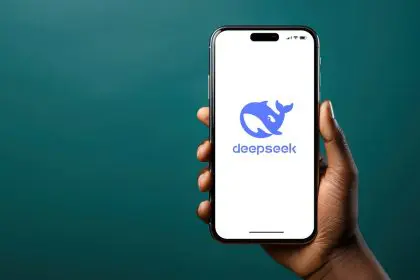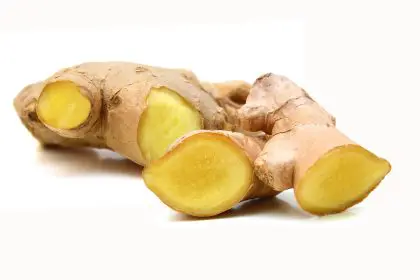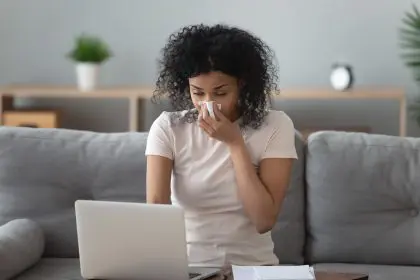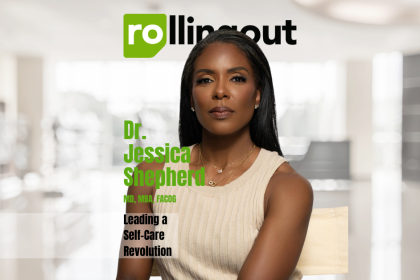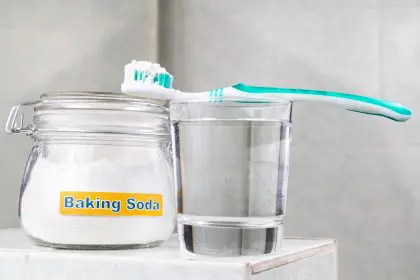In an illuminating conversation about heart health and racial disparities in healthcare, Dr. Renee Matthews, a distinguished physician and media personality, shares crucial insights during Heart Health Month. With her recent book “Mommy, I Can’t Breathe: The Modern Guide to Navigate Allergies and Asthma” and her presence in 45,000 doctors’ offices nationwide through educational content, Dr. Matthews has established herself as a leading voice in medical education and health advocacy. Her journey from a childhood asthma patient to becoming a prominent medical communicator exemplifies her dedication to making healthcare information accessible to all communities.
How did your journey in medicine and media begin?
I was a sick kid, which is why I wrote the book, “Mommy, I Can’t Breathe: The Modern Guide to Navigate Allergies and Asthma.” I was born with asthma, I was a sick kid, spent a whole lot of time in hospitals, and my mom was in healthcare, too, my mother worked in hospitals when I was a child, she’s a respiratory therapist.
And I saw it, and I said I wanted to be a doctor, and from the age of 5 I always wanted to be a doctor, and it wasn’t until probably middle school, I saw Dr. Nancy Snyderman, white Jewish woman, on the Good Morning America, and later she ended up being on the Today Show. I think that was probably college adult years, but she ended up—they ended up blackballing her, and she’s off the scene completely. But I saw her and was like, I wanted to do that. And my mom’s like we don’t know anyone. I don’t know what. I think you need to figure out something else. So my backup plan was I was going to deliver babies. I was going to be an OBGYN, but right out of medical school, I ended up with a satellite radio show and that’s also when I joined NABFEM, the National Association of Black Female Executives in Music and Entertainment.
And my mentor, big Sister Karen Taylor Bass, who was the fabulous person that brought us Jill Scott—she’s the one that did the campaign “Who is Jill Scott?” and was her publicist for several years. She is the one that gave me the name Dr. Renee, because my sister and I both knew that once I graduated med school, I was gonna be Dr. Matthews, and we never answered anything but—and then, after I graduated summer of 2005 is when I went to this concert—I mean this conference, and I graduated in 2005, and she said, I ended up telling her because we was at Entertainment Conference. Why would I mention I was a doctor? So I ended up telling her, and she was “you’re Dr. Renee,” and I was “Huh!”
And sure enough, I spent the whole weekend with her, and anytime the next time I went to introduce myself, she gave me this look “you better say it, or else” and I was “Dr. Renee.” And that’s where I became Doctor Renee, and so here I am now, and unfortunately was able to prove my mother wrong and show her that I can do media as a doctor. I don’t have to see patients. And I educate the masses through my different platforms, television radio print and online media. And I have a show in 45,000 doctors’ offices in the waiting rooms, and I educate people about that. They’re 3-minute episodes that give you a little something hopefully to help you when you go in for your appointment.
Why is heart health so important for our overall well-being?
Yes, your heart is the engine that keeps your body moving, it pumps the blood to all the parts of the body, so you can imagine if your heart’s not functioning well and they have to compromise, then you’re not going to get blood to whatever vital organ—it could be the heart, it could be the brain, it could be the vessels in your body that go to your eyes, it could be anything. So that is why the heart is so important. And then, the conditions that are linked to a bad heart is stroke, kidney disease, and even dementia, because, remember, I mentioned that the heart is the one that pumps the blood. So, if you’re not getting blood to the brain—
What are the biggest misconceptions people have about heart disease?
I think the biggest one is that it’s a man’s problem, and they don’t consider—they don’t often think of women. Even, let’s just talk about in our community, Fred Sanford, on this show. The only person that was ever saying he was having a heart attack was Fred, right?
You never see none of the ladies saying that. So they think it’s a man’s problem, and it’s not a man’s problem. Heart disease is the leading cause of death for both men and women. Another one is that it’s older people. It is especially now. It is not older people. We are seeing a lot of what they called older diseases and manifesting in children, unfortunately, because of our diets. So what used to be called juvenile diabetes, which was type one diabetes we’re now seeing—we’re seeing that it’s not just juvenile. It’s everyone now, type 2 diabetes used to be linked to basically people who are older. Now, we’re seeing kids with it. Juvenile is an autoimmune disease. But type 2 often it—heart comes into that, too. But Type 2 was something that you saw later in life. But now that we’re having these children that are so morbidly obese, they’re ending up with type 2 diabetes, which means that they probably have high blood pressure, which means that they have heart disease.
At what age should people start paying attention to their heart health?
Honestly, I think that now whomever is listening, watching, reading—now, now, just now you need to pay attention to what you’re eating. Make sure you’re getting daily exercise. Make sure that your stress levels, unfortunately. And I think we hate to say it, because we’re grown folks. But a lot of these children are under a lot of stress, I hate to say, and stress is not good for the heart either. So we need to really, as a family, we need to all be looking at our heart health.
What are some of the early warning signs of somebody whose heart may be in trouble?
So you could have shortness of breath. Of course, chest pain or tightness, swelling in the feet, legs, or even the stomach, dizziness or unexplained fatigue, and of course, high blood pressure, and they won’t come down. But unfortunately, a lot of us don’t check our blood pressure outside of that time that we go to the doctor’s office for our visit.
So I really highly suggest every family have a cuff at their home, and I’m not saying you need to check it every day, but just check it once in a while, so that you kind of know where your numbers should be, because there is a thing called white coat hypertension. So when you go to the doctor’s office, because you see the white coat, your blood pressure goes up so that reading may not necessarily actually be what your normal blood pressure is. But if you take your blood pressure regularly, then you know what your number usually is, and you could say to the doctor, “Oh, what I think that I might have white coat hypertension,” because and if you record them, that’s even better. You can show the doctor and say, “Look, you can see this is what my blood pressure has been for the last 4 weeks, or whatever month, year whatever,” and they would say, “Oh, okay, we understand.” And you could probably avoid getting on blood pressure medicine just because you had the decency to keep track of that stuff and let them know most doctors will listen to you and pay attention.
Most of the cuffs now have apps that are attached to them, so they’ll do the recording for you. So, you don’t even have to worry about writing it down at a piece of paper, and remembering to take the notebook to the doctor’s office. It’ll be in your phone, and by myself, I had to show the doctor because my blood pressure reading was not correct, and it was not correct because the wrong equipment was used. But it wasn’t correct, and I said, “No, no, let me show you my blood pressure.” She said, “Oh, okay,” because she was about to write me a prescription.
What role does high blood pressure and cholesterol play in heart disease?
So they call it the Silent Killer, because over time, if you have high blood pressure, it affects your vessels because they can’t get—so you want your blood vessels to be nice and hollow, and you want the blood to go right through. But if you have high cholesterol or your blood pressure, it’s not pumping right. That’s going to affect the vessels. And then it’s not going through as smoothly as you want it to, which is why you end up with these blood pressure issues so cholesterol, it forms plaques, and those are the things that develop inside of the vessel that make it difficult for the blood to get through. So that’s why they call it Silent Killer. Because obviously we can’t see this going on inside of our bodies, and there might be the subtle things about oh, you have dizziness or unexplained fatigue, or you have the swelling in your limbs. But if you’re ignoring those, then you have no idea that you do have this really, really high blood pressure, and you probably don’t realize that your cholesterol level is so high. So, it’s really, really important. Exercise is so important and drinking lots of water, not just fluids, water.
How does stress affect the heart, and what are some ways to manage it?
Yes, stress raises blood pressure, and it also triggers inflammation so that can lead to rhythm issues in your heart so the ways to manage it. Deep breathing or meditation. There’s a lot of people have been talking about they’re having anxiety attacks, they have anxiety. I’m telling you, if you get anxious, and you just stop for a moment and just breathe in and count to 10 and let it out and do that a couple of times you’d be amazed how much better you would feel so deep breathing or meditation. And you can Google, and find out all sorts of information about how to do this and incorporate that into your daily lifestyle, exercise, and when I say exercise, it could just be a daily walk.
What I tell everyone is, if we could just do 30 minutes a day, 5 days a week, and it doesn’t have to be a straight 30 is what I always say. You don’t have to do a straight 30. You could break it up in 3 sets of 10, or if it’s 5 minutes, but you just need to get your heart rate up for 30 minutes for 5 days a week. I’m not even saying 7, 5 days a week. Listening to music also can relieve stress and doing other activities that you like to do. Do you like to dance? Do you like to golf? Do you like to go to the movie, just anything that you like to do? Those things can reduce stress. And then the biggest one, and I know we hear this a lot now, setting boundaries and protecting your peace.
You don’t have to know everything. Obviously, we live in this lovely world of 2025 in the United States of America. I don’t watch the news. People think I’m crazy, but when I tell you I am so at peace. I have been to at least 3 meetings in the last few weeks where they’re like, we just need to do a temperature check—is everyone okay? I’m fine, because I’m oblivious to most of what is going on. I know what I need to know, and that’s all that I need to know. I don’t need to know everything, because I can’t do anything about everything, so there’s no need for me to get stressed out about it.
How are Black communities disproportionately affected by heart disease, and what factors contribute to this?
Unfortunately, it’s the lack of affordable healthcare which Covid pointed out to us very blaringly. We already knew it, but now the rest of the world kind of found out—limited access to heart healthy food. So many black neighborhoods are in food deserts which, in case you don’t know, those are the places where there is no major grocery store. All there is is the corner store that doesn’t usually have fresh produce, fresh meat, etc, etc. So non processed foods, basically. And then there’s fewer black doctors who understand our unique health concerns. So there have been studies done that if you are black, and you’re treated by a black physician, you actually have better outcomes.
And this has been proven, there’s been studies done. This has actually been proven. And then there’s misinformation about the heart disease symptoms. Chest pain is not necessarily the sign for women which many people don’t realize. Indigestion is kind of the sign. Women will have some sort of it will be it’s indigestion a burning in their chest. But it’s not chest pain, but it’s “Hmm!” That food just didn’t quite go down or something, and then, next thing you know, they’ve had a heart attack.
And I think the way that we can help this is regardless of what color your doctor is, ask questions at the doctor’s office, and the best way to do that, because doctors do not have a lot of time is, make sure you write them down before you go. If you have to put them in your phone on a notebook, whatever write them down before you go, bring someone with you that has the questions for you, because maybe you’re not the person to ask the questions, because you’re the one receiving the information about you—have an advocate with you. We need to push for policies that bring healthier foods and medical resources into our neighborhoods. We need to share information. If you learn something helpful, please tell your family and friends.
I will never forget. We kept trying to tell my father to please, please exercise. So he finally starts exercising. He goes to the doctor, and he takes him lower and lower off of his blood pressure medicine. And he said, “Renee, my blood pressure medicine. I don’t have to take as much because I start exercising.” Now, his doctor daughter had been telling him this, but his physician told him so. Now he’s listening.
It’s so funny how it works. Mind you, he knows all about cars, and I will listen to him about that. But yeah, it’s really important when you get information, especially when you know it’s factual information. We spread that because we are real quick in case you haven’t noticed to spread gossip and foolishness that doesn’t make sense. Let’s spread good information that you learn about your health, and so that we can all help each other, and then please support black medical professionals. They understand our needs, and they know how to take care of us. They understand that there are—there is, and I cannot think of the name of it right now. But there is a hypertension medication on the market, so there’s a high blood pressure medicine that does not work well for black people.
But not necessarily does a doctor that’s not black know that. And also the effects of salt on our body is not the same as it is on other people. So it’s really important we lower our salt intake.
Why is it important to address food deserts in our communities regarding heart health?
Because the preservatives that are in the processed foods—I mean, if you just look at the labels, the sodium, because they have to stay on the shelf. So they put all this extra sodium, all these other chemicals in there. And that is why it’s so important that we don’t have food deserts because we need to get healthy. You need to have foods from scratch. You need to have the actual vegetables, frozen is fine, but need to have the actual vegetables not whatever little dried vegetables you add water and stir.
What initiatives or resources would you share with individuals to help address heart health disparities?
One thing I want to say, because I did say you need to lower your salt. You need to look at other herbs and spices. That’s what you do. Your food can have taste, because I’m not going to eat anything that doesn’t taste good, so trust me, you can make it taste good without salt. You just need to look at alternatives. There’s so many—there’s—I use “No Salt,” that’s my favorite one that I use, and “No Salt” is actually, it’s a potassium product. But I use “No Salt.” But there are so many products that you can use that are herbs and spices that do not have the sodium in them, so please check those out. But the Association of Black Cardiologists, they work to improve heart health in our community, obviously. And then there’s the American Heart Association that we all have heard of and know about. They have a program called Check Change Control, and that helps people manage their blood pressure. And then the local black churches and community centers, they offer free screenings. I actually participated in one with Omron a couple of years ago at Saint Sabina, in Chicago, and we did blood pressure screenings and gave away a bunch of blood pressure monitors that day. And so just you really need to take charge of your heart health. And please figure out—Google is your best friend. So if you need to find some more resources, please just Google it. But take care of your heart health, because if you do not have your ticker, I really don’t know what to say—you’re not going to be here.
Where can people find you to learn more?
I am everywhere at Ask Dr. Renee. My website is askdrrenee.info and I’m Ask Dr. Renee on Instagram, YouTube, TikTok, Facebook.







